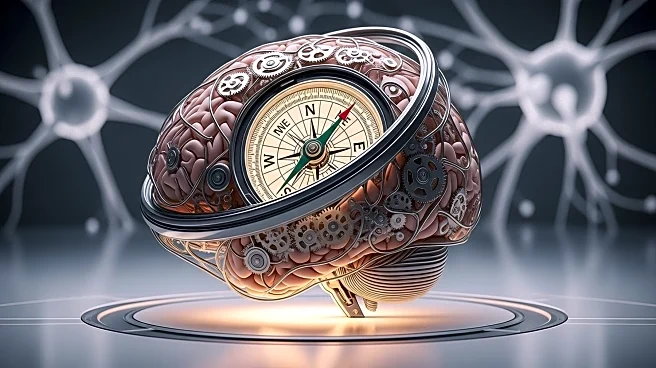What's Happening?
Researchers have pinpointed the brain's 'mileage clock' by studying rats and human volunteers. The study, published in Current Biology, involved recording brain activity in rats as they navigated a small arena. The researchers discovered that 'grid cells' in the brain fired in a pattern resembling a mileage clock, helping the rats estimate distances. When the environment was altered, the rats struggled with distance estimation. A similar experiment with humans showed that the human brain has the same mileage clock, which is crucial for navigation and memory. The findings could aid in understanding how the brain's internal map functions and what happens when it malfunctions.
Why It's Important?
This discovery has potential implications for diagnosing and understanding Alzheimer's Disease, as the brain cells involved are among the first affected by the condition. The research could lead to new diagnostic tools that assess navigation and distance estimation abilities, providing early indicators of Alzheimer's. Additionally, the study enhances the understanding of human and animal navigation, which could influence fields such as neuroscience, psychology, and even technology development related to navigation systems.
Beyond the Headlines
The study's insights into the brain's mileage clock may have broader applications in developing cognitive therapies and interventions for individuals with navigation impairments. Understanding the brain's internal mapping system could also inspire advancements in artificial intelligence and robotics, where navigation and spatial awareness are critical.










